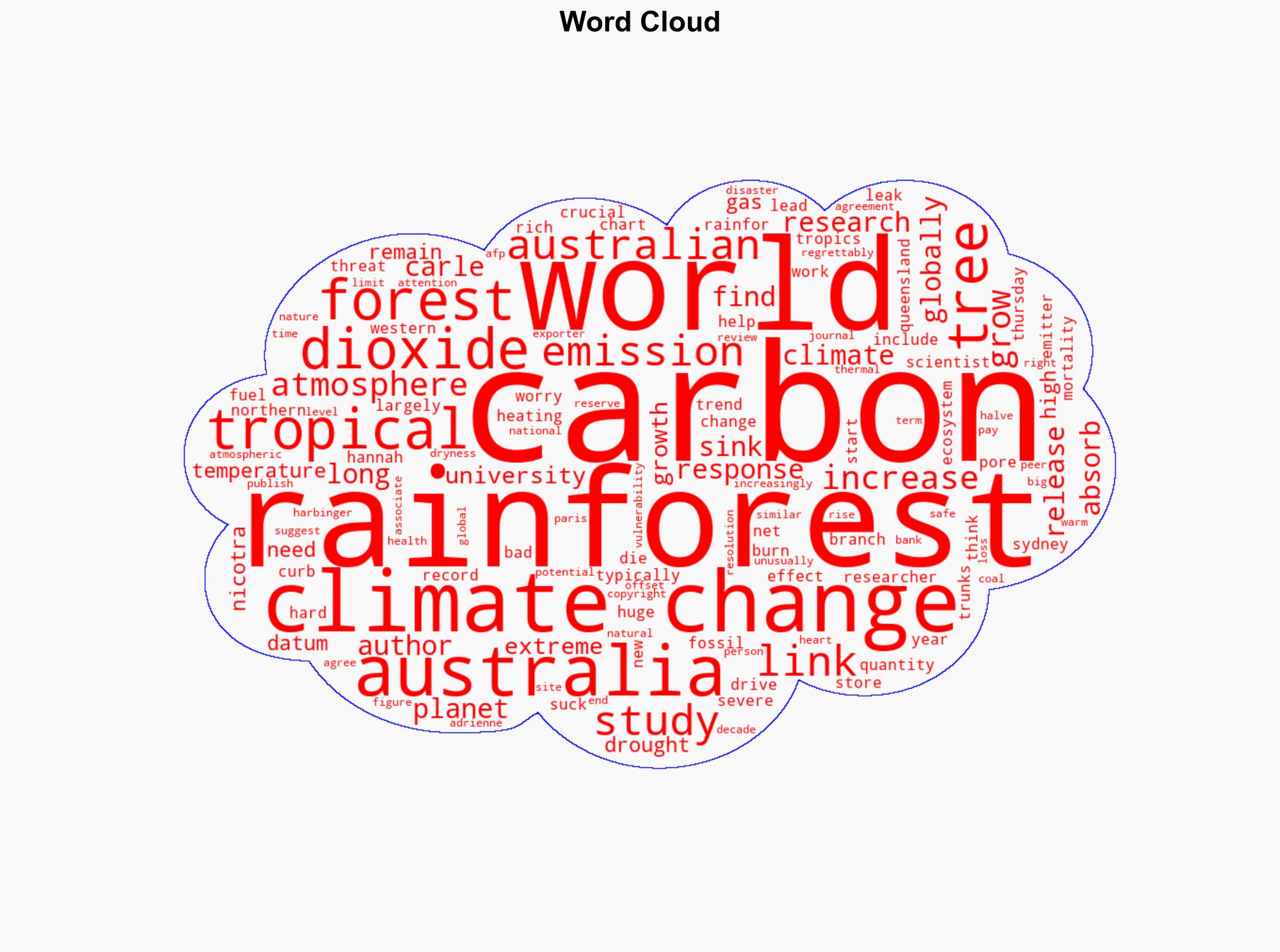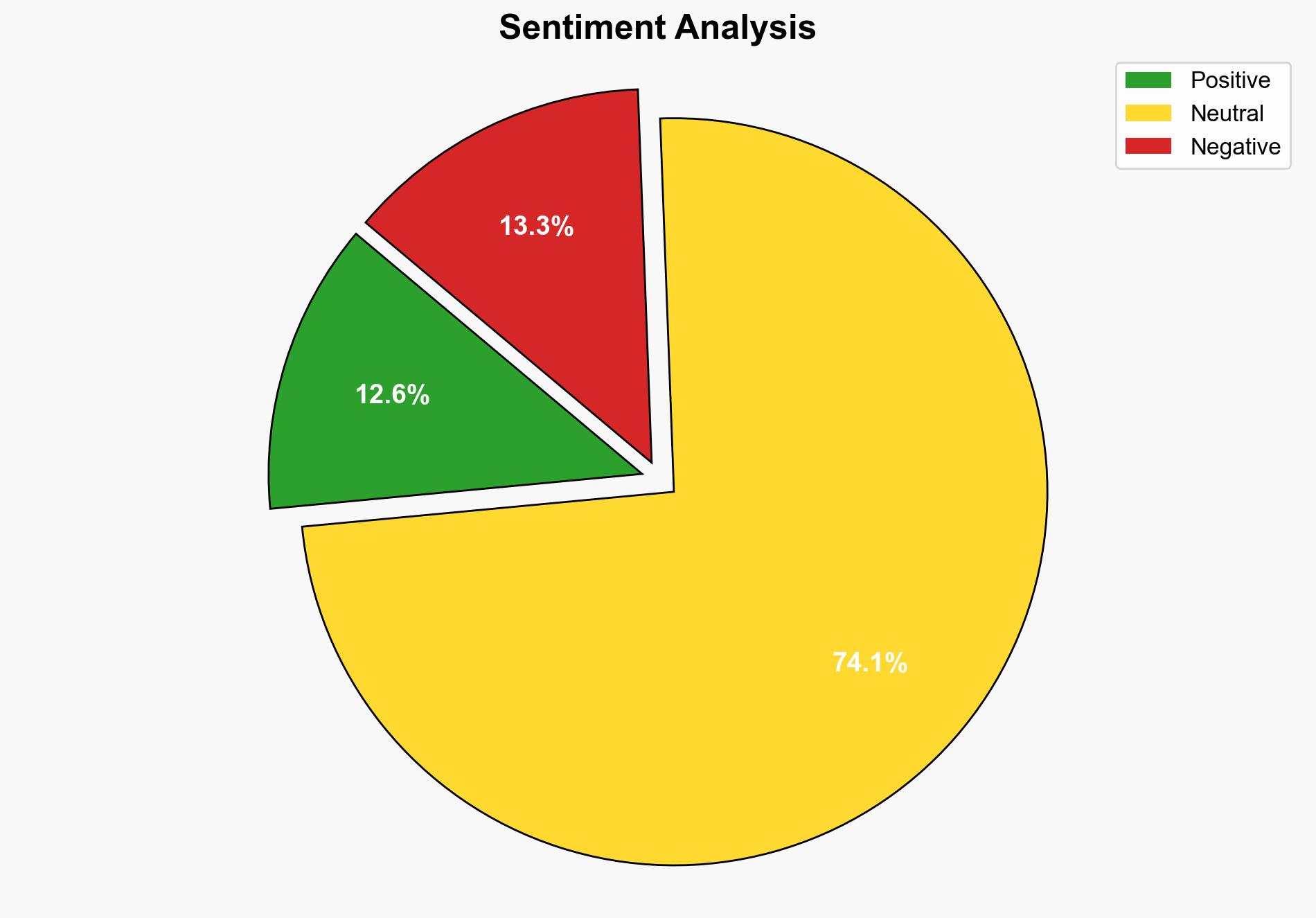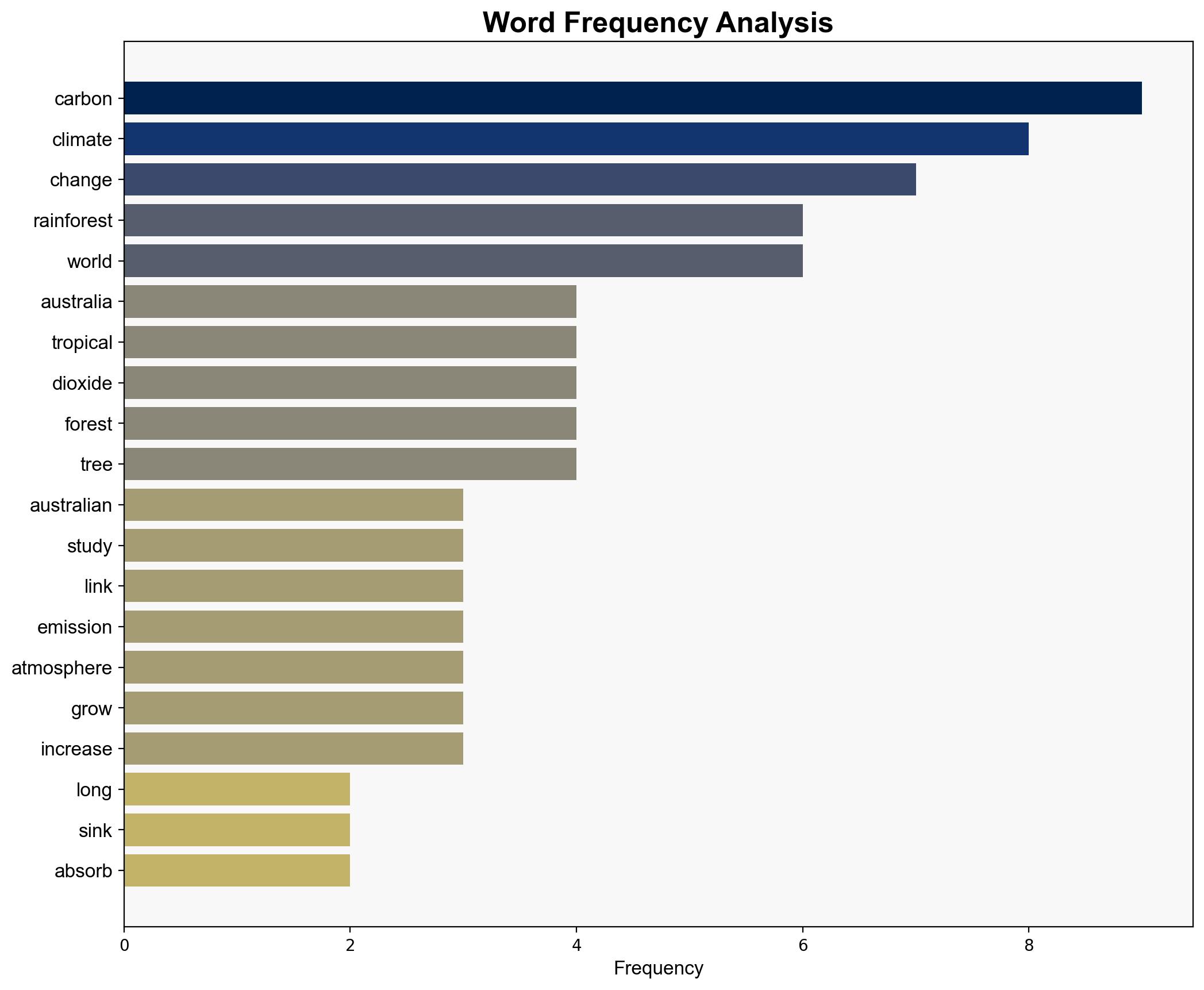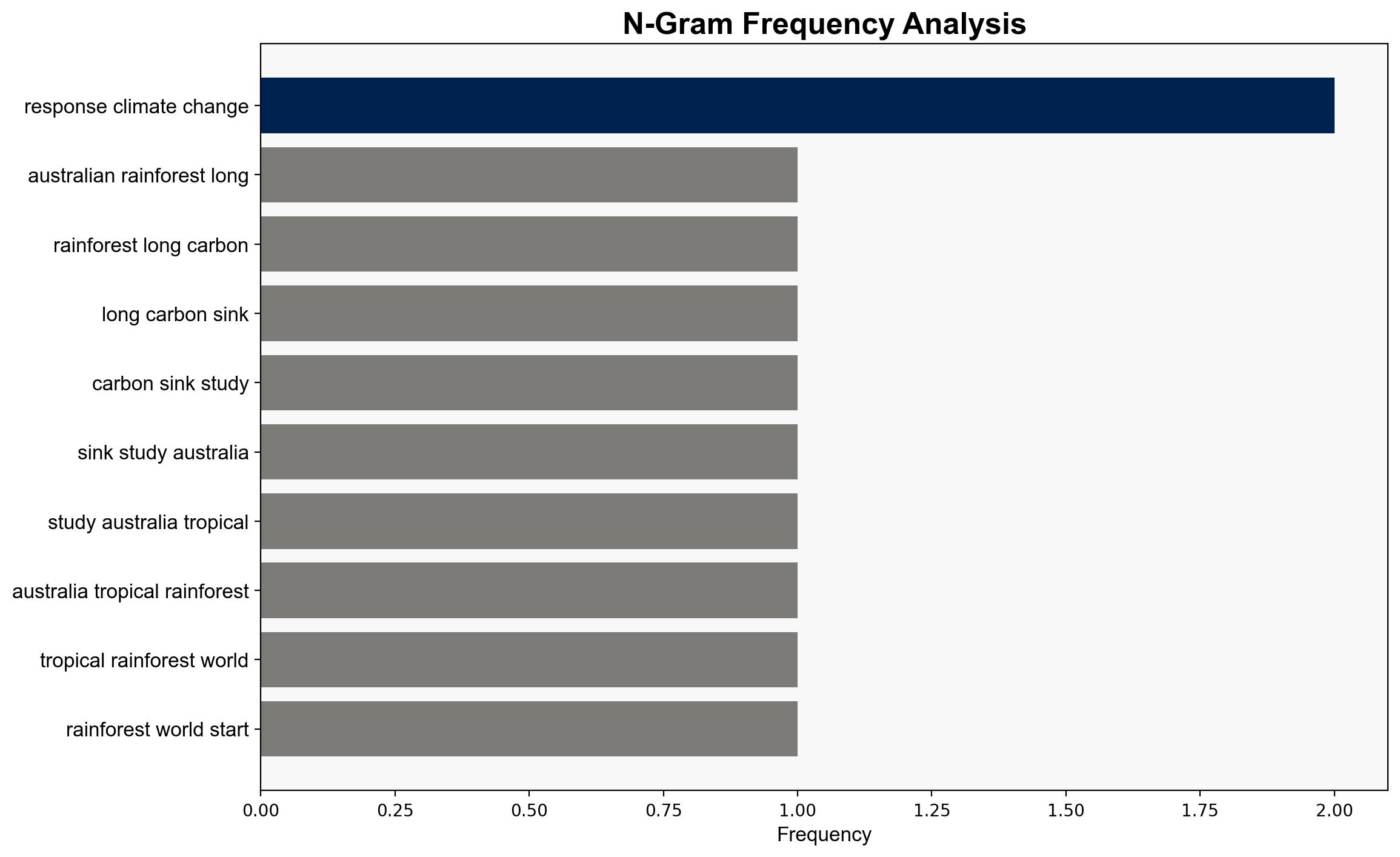Australian Rainforests No Longer A Carbon Sink Study – International Business Times
Published on: 2025-10-16
Intelligence Report: Australian Rainforests No Longer A Carbon Sink Study – International Business Times
1. BLUF (Bottom Line Up Front)
The study suggests that Australian rainforests have transitioned from being carbon sinks to carbon emitters due to climate change impacts. The hypothesis that increased tree mortality and environmental stressors are driving this shift is better supported. Confidence level is moderate due to potential data limitations and assumptions. Immediate action is recommended to enhance rainforest conservation efforts and global climate policy adjustments.
2. Competing Hypotheses
1. **Hypothesis A**: Australian rainforests are now net carbon emitters primarily due to increased tree mortality and environmental stressors linked to climate change.
2. **Hypothesis B**: The observed carbon emission is a temporary anomaly caused by short-term climatic events and does not represent a long-term trend.
Using ACH 2.0, Hypothesis A is better supported by the data indicating long-term trends of increased temperature and drought, which align with the findings of increased tree mortality and carbon release.
3. Key Assumptions and Red Flags
– Assumptions include the accuracy and completeness of long-term climate data and the representativeness of the study area for global rainforests.
– Potential cognitive bias includes confirmation bias towards climate change impacts.
– Red flags include the lack of data on potential mitigating factors, such as adaptive forest management practices, and the possibility of unreported variables influencing carbon dynamics.
4. Implications and Strategic Risks
The transition of rainforests from carbon sinks to emitters could exacerbate global warming, increasing the urgency for international climate agreements. Economically, this could affect industries reliant on carbon credits. Geopolitically, it may strain relations between countries with differing climate policies. The psychological impact includes increased public concern over climate change.
5. Recommendations and Outlook
- Enhance monitoring and data collection on rainforest health globally to verify trends.
- Strengthen international climate agreements to address carbon emissions more aggressively.
- Scenario Projections:
- Best: Global cooperation leads to effective climate mitigation strategies.
- Worst: Continued inaction results in accelerated climate change impacts.
- Most Likely: Incremental policy changes with mixed effectiveness.
6. Key Individuals and Entities
– Hannah Carle
– Adrienne Nicotra
7. Thematic Tags
climate change, environmental policy, global warming, carbon emissions





